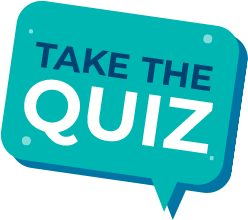
Calorie Counting and Peer Pressure
DownloadTable of Contents
What do I do when all my peers are dieting and calorie counting?
Dealing with diet culture as a teenager can be really challenging. Unfortunately, in today’s society, many disordered eating habits are considered ‘normal’ and are socially accepted. If the people around you are all trying the latest diet and calorie counting, it’s totally normal to feel pressure to join in. You want to fit in and feel accepted.
However, it’s so important to listen to your body’s needs and your own inner voice first. Not only do 75% of diets result in weight gain, but extreme calorie counting is often one of the first signs of developing disordered eating.
Why is calorie counting so risky?
Calorie counting isn’t just about numbers, it affects how we enjoy food and how we see our bodies. When we focus on calories, we miss out on the real magic of food. It can make us enjoy our meals less, forget about the love that goes into cooking, reject how nutrient rich the meal is and overlook the importance of the people we share our meals with.
Calorie counting assumes that our bodies need the same amount of food every single day, which just isn’t true. Our bodies change, and they’re different from each other because of things like age, sex, weight, height, genetics, how active we are, and even the temperature and time of day!
Trying to figure out exactly how many calories we need every day is almost impossible. And when we see our weight go up and down on the scale, it can make us feel bad or like we’re not doing something right.
Focus on how you feel instead of calorie counting
It can be difficult but try to focus on how you feel, not on the number of calories or how you look. Do you have enough energy to get through the school day or for your hobbies? That’s what matters. If you need more energy, it may be a sign that you need to eat more varied snacks and make sure you are eating three meals throughout the day.
Open communication to combat peer pressure
Speak up if you feel hurt by body shaming. Let your friends know their words can be damaging. If your friends are talking about the latest fad diet or how many calories they’ve eaten that day, suggest shifting the conversation.
Explore body positivity
Surround yourself with body positive messages. Unfollow accounts on social media that make you feel bad about your body and that you always compare yourself to. Follow influencers who combat diet culture, such as @bodiposipoet and @meganjaynecrabbe. If body positivity feels too difficult, try body acceptance or body neutrality instead.
Seek support
If you’re worried about calorie counting amongst your friends, speak to someone you trust about it. That could be a friend, parent, carer, teacher, group leader or health professional, like a GP.
Conclusion
It’s great that you are questioning calorie counting and diet culture, and breaking free from the mould. Remember, you have so much more to offer the world than the way you look!
Check out our Body Image and Eating module for more tips. And, if you found this resource helpful, try reading ‘Ditch Diet Myths! Unpacking diet culture, food rules and ‘clean’ eating’ next!















